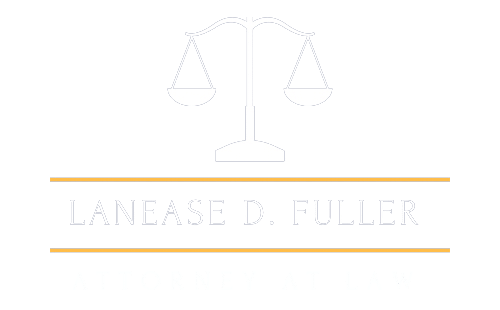When most people think about estate planning, the first thing that comes to mind is writing a will. However, estate planning encompasses a much broader spectrum of decisions and documents designed to manage and distribute your assets, protect your loved ones, and ensure that your wishes are honored in various scenarios. As an experienced attorney based in Houston, I’ve seen firsthand how comprehensive estate planning can provide peace of mind and security for you and your family. In this blog post, we will explore the many facets of estate planning and why it is so much more than just writing a will.
Understanding Estate Planning
Estate planning is a holistic approach to managing your personal and financial affairs. It involves creating a set of legal documents and strategies that address:
Distribution of assets after death
Guardianship for minor children
Health care directives and medical decisions
Financial management during incapacity
Minimizing taxes and legal fees
By addressing these areas, estate planning helps ensure that your wishes are carried out, your family is protected, and potential conflicts are minimized.
Key Components of Estate Planning
Wills and Trusts
Wills: A will is a legal document that outlines how your assets should be distributed upon your death. It can also designate guardians for minor children and name an executor to manage your estate.
Trusts: Trusts are legal entities that hold assets on behalf of beneficiaries. They can provide more control over how and when your assets are distributed. Trusts can be revocable (can be altered or revoked) or irrevocable (cannot be changed once established).
Powers of Attorney
Financial Power of Attorney: This document allows you to designate someone to manage your financial affairs if you become incapacitated.
Medical Power of Attorney: This grants someone the authority to make medical decisions on your behalf if you are unable to do so.
Advance Health Care Directives
Also known as living wills, these documents specify your wishes regarding medical treatment and end-of-life care. They guide your loved ones and medical professionals in making decisions that align with your preferences.
Beneficiary Designations
Assets such as life insurance policies, retirement accounts, and payable-on-death accounts allow you to name beneficiaries directly. These designations supersede your will and are an essential part of estate planning.
Guardianship Designations
If you have minor children, it’s crucial to designate a guardian in your will. This ensures that someone you trust will take care of your children if you are no longer able to do so.
Letter of Intent
While not a legally binding document, a letter of intent can provide guidance to your executor and loved ones regarding your wishes and the details of your estate plan. It can include personal messages, funeral instructions, and specific bequests.
The Importance of Comprehensive Estate Planning
Avoiding Probate
Probate is the legal process of administering a deceased person’s estate, which can be time-consuming and expensive. Comprehensive estate planning, especially the use of trusts, can help your estate avoid probate, ensuring a quicker and more private distribution of assets.
Minimizing Taxes
Proper estate planning can minimize the tax burden on your estate and your beneficiaries. Strategies such as gifting, charitable donations, and establishing trusts can help reduce estate taxes and maximize the inheritance for your loved ones.
Protecting Your Assets
Estate planning can safeguard your assets from potential creditors and legal claims. Irrevocable trusts, for instance, can provide significant protection by removing assets from your personal ownership, thus shielding them from lawsuits and creditors.
Ensuring Business Continuity
If you own a business, estate planning is essential to ensure its smooth transition upon your death or incapacity. This can involve creating a succession plan, setting up a buy-sell agreement, or establishing a trust to manage the business.
Real-Life Scenarios: The Impact of Comprehensive Estate Planning
Scenario 1: Avoiding Family Disputes
Consider a family where the parents pass away without a comprehensive estate plan. The lack of clear instructions can lead to disputes among siblings over asset distribution, guardianship of minor children, and medical decisions. By contrast, a detailed estate plan can prevent such conflicts by providing clear guidelines and ensuring that everyone understands the parents’ wishes.
Scenario 2: Protecting a Special Needs Child
A family with a special needs child faces unique challenges in estate planning. Simply leaving assets to the child could jeopardize their eligibility for government benefits. Establishing a special needs trust can ensure that the child receives the necessary support without affecting their benefits, providing long-term security and care.
Scenario 3: Ensuring Business Continuity
A business owner who passes away without a succession plan can leave their business in turmoil. Employees, clients, and family members may be left uncertain about the future. By creating a comprehensive estate plan that includes a business succession plan, the owner can ensure a smooth transition and the continued success of the business.
Scenario 4: Blended Families and Inheritance Issues
In a blended family, where spouses have children from previous relationships, estate planning becomes even more crucial. Without clear directives, stepchildren might unintentionally be disinherited or conflicts could arise between biological children and stepchildren. A well-thought-out estate plan can provide for all family members according to your wishes, ensuring equitable treatment and reducing the potential for disputes.
Scenario 5: Caring for Aging Parents
As the population ages, many people find themselves responsible for the care of elderly parents. Estate planning can address this by setting up mechanisms such as a durable power of attorney for healthcare and finances, ensuring that decisions are made in the best interest of your parents if they become incapacitated. Additionally, long-term care planning can help manage the financial burden of nursing home or assisted living expenses.
Steps to Creating a Comprehensive Estate Plan
Assess Your Needs and Goals
Begin by evaluating your assets, liabilities, and personal circumstances. Consider your goals, such as providing for your family, supporting a charity, or ensuring your business’s continuity.
Consult an Estate Planning Attorney
Work with an experienced attorney who can guide you through the process, explain your options, and help you create a tailored estate plan.
Draft the Necessary Documents
Create your will, trusts, powers of attorney, and advance health care directives. Your attorney will ensure these documents are properly executed and legally binding.
Review and Update Your Plan Regularly
Life changes, such as marriage, divorce, the birth of a child, or significant changes in your financial situation, should prompt a review of your estate plan. Regular updates ensure that your plan remains aligned with your current wishes and circumstances.
Communicate Your Wishes
Inform your loved ones and the designated individuals in your plan about your wishes and the location of your important documents. Clear communication can prevent confusion and disputes.
The Role of an Estate Planning Attorney
An estate planning attorney plays a critical role in creating and maintaining your estate plan. Here’s how they can help:
Personalized Advice: Every individual’s situation is unique. An attorney can provide customized advice based on your specific needs and goals.
Legal Expertise: Estate planning involves complex legal concepts and requirements. An attorney ensures that your documents are legally valid and comply with state laws.
Tax Planning: Attorneys can help you navigate tax laws and implement strategies to minimize estate and inheritance taxes.
Conflict Resolution: In the event of disputes or challenges to your estate, an attorney can provide legal representation and work to resolve conflicts.
Real-Life Scenarios: The Impact of Comprehensive Estate Planning
Scenario 1: Avoiding Family Disputes
Consider a family where the parents pass away without a comprehensive estate plan. The lack of clear instructions can lead to disputes among siblings over asset distribution, guardianship of minor children, and medical decisions. By contrast, a detailed estate plan can prevent such conflicts by providing clear guidelines and ensuring that everyone understands the parents’ wishes.
Scenario 2: Protecting a Special Needs Child
A family with a special needs child faces unique challenges in estate planning. Simply leaving assets to the child could jeopardize their eligibility for government benefits. Establishing a special needs trust can ensure that the child receives the necessary support without affecting their benefits, providing long-term security and care.
Scenario 3: Ensuring Business Continuity
A business owner who passes away without a succession plan can leave their business in turmoil. Employees, clients, and family members may be left uncertain about the future. By creating a comprehensive estate plan that includes a business succession plan, the owner can ensure a smooth transition and the continued success of the business.
Estate Planning is More Than Writing a Will
Estate planning is a vital process that goes far beyond writing a will. It encompasses a variety of documents and strategies designed to protect your assets, ensure your wishes are honored, and provide for your loved ones. By taking a comprehensive approach to estate planning, you can avoid probate, minimize taxes, safeguard your assets, and ensure the continuity of your business.
As an experienced estate planning attorney in Houston, I can help you navigate the complexities of estate planning and create a personalized plan that meets your needs. Don’t wait until it’s too late—start planning today to secure your future and protect your family.
LANEASE D. FULLER LAW
4615 S. Frwy St. 820
Houston, TX 77051
713-439-7400
Google Listing


